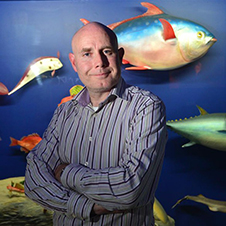The Reproduction, Genomics and Development Group is made up of a number of labs that explore different aspects of development: from fertilisation and the processes governing the very first cellular divisions, through to adulthood and how problems that arise during early development and gestation may have effects on the health of individuals and populations. The RGD group explores these questions in humans, model systems and a host of unique and understudied animal taxa.
Their research blends developmental and reproductive biology with genomics, ecology, population, conservation and evolutionary biology. A lot of the research focuses on questions of pure scientific interest, but there is also a strong element of work that has application and commercial benefit to end users in medicine, public health, conservation, biosecurity, fisheries and agricultural.
Principal Investigators (PIs)
Professor Greg Anderson (Chair of the Reproduction, Genomics and Development Group)
 The Anderson Research Group are focused on the regulation of fertility by nutritional factors (the hormones leptin, insulin and ghrelin) and the mechanisms by which the brain peptide RFamide-related peptide-3 (RFRP-3, a.k.a. gonadotrophin inhibitory hormone) regulates reproductive activity and anxiety in mammals.
The Anderson Research Group are focused on the regulation of fertility by nutritional factors (the hormones leptin, insulin and ghrelin) and the mechanisms by which the brain peptide RFamide-related peptide-3 (RFRP-3, a.k.a. gonadotrophin inhibitory hormone) regulates reproductive activity and anxiety in mammals.
The 'big picture' goal is the development of new and improved treatments for infertility and anxiety-related disorders.
The Anderson Research Group forms one of the laboratories that make up the University of Otago's Centre for Neuroendocrinology. Greg is a member of both the 'Neuroscience Group' and the 'Reproduction, Genomics and Development Research Group'.
Associate Professor Mike Garratt
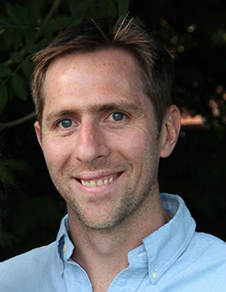 My research is interested in how reproduction influences life-history, health and ageing. This includes physiological effects of gonadally-derived hormones, consequences of mating, and even impacts of social pheromone perception on life-history trajectory. A related research theme explores how sex-specific aspects of reproduction cause sexual-dimorphism in lifespan, and influence the effectiveness of interventions developed to improve healthy ageing.
My research is interested in how reproduction influences life-history, health and ageing. This includes physiological effects of gonadally-derived hormones, consequences of mating, and even impacts of social pheromone perception on life-history trajectory. A related research theme explores how sex-specific aspects of reproduction cause sexual-dimorphism in lifespan, and influence the effectiveness of interventions developed to improve healthy ageing.
Most experimental work is conducted in mice, which provides access to molecular-genetic techniques to directly manipulate physiology controlling development, reproduction and ageing. We also use comparative approaches to identify evolutionary and mechanistic drivers of diversification in life history on an interspecies scale, and have several collaborative projects that probe links between reproduction and aging in wild animals.
Professor Neil Gemmell
My research blends ecology, population, conservation and evolutionary biology with recent technological spin-offs from the various genome projects.
A recurring theme is that of reproduction, with past and current projects spanning mating systems and mate choice, sperm-egg interactions, sperm function, sex determination, sex allocation, and inter-sexual genomic conflict.
I also have interests in the evolution of the mitochondrial genome, the evolution of microsatellite DNA, the evolution of sex determining mechanisms and the processes that lead to speciation.
Allan Wilson at Otago Research Group
Associate Professor Jane Girling
 Jane joined the Department of Anatomy in 2018 after nearly 20 years working in Australia, most recently in the Gynaecology Research Centre at the University of Melbourne and Royal Women's Hospital, Melbourne. Jane is a reproductive biologist with research interests in uterine biology and women's health, with a particular focus on the common gynaecological disorder endometriosis.
Jane joined the Department of Anatomy in 2018 after nearly 20 years working in Australia, most recently in the Gynaecology Research Centre at the University of Melbourne and Royal Women's Hospital, Melbourne. Jane is a reproductive biologist with research interests in uterine biology and women's health, with a particular focus on the common gynaecological disorder endometriosis.
In ongoing collaborative research with colleagues in Australia, Jane is investigating the functional role of genetic variants linked with the pathophysiology of endometriosis. Jane is also examining patient details and the phenotype endometriotic lesions with the goal of identifying characteristics that may assist clinicians with treatment decisions.
Jane also has an interest in the impact of menstrual pain and menstrual bleeding disorders on individuals and their families, and how we can better assist girls and young women to live a full and happy life.
Professor Dave Grattan
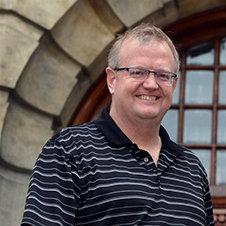 Our research focuses on the neuroendocrine control of reproduction, in particular the mechanisms by which reproductive hormones act to influence neuronal activity in the hypothalamus.
Our research focuses on the neuroendocrine control of reproduction, in particular the mechanisms by which reproductive hormones act to influence neuronal activity in the hypothalamus.
Particular interests are in the neurobiological and neuroendocrine adaptation to different reproductive states. Our research aims to further the understanding of the interactions between reproductive hormones and the central nervous system. Such studies may be of significance to the control of mammalian reproduction and may also have clinical relevance to an understanding of hormonal modulation of psychological and neurological disorders.
Dave is one of a number of researchers whose work combines neuroscience with reproduction and developmental biology, and who are members of both the 'Neuroscience Group' and the 'Reproduction, Genomics and Development Research Group'.
Associate Professor Tim Hore

Tim's research interests lie at the intersection between epigenetics and development. His current research is focused upon harnessing DNA demethylation to create pluripotent cells efficiently and safely, work that involves collaboration with scientists at the Babraham Institute in the United Kingdom (Wolf Reik and Ferdinand von Meyenn) and University of Stuttgart in Germany (Tomek Jurkowski).
Tim's team is also actively researching the consequences of epigenetic reprogramming and DNA demethylation in the germlines of divergent vertebrate models, and with others at Otago (Sheri Johnson and Neil Gemmell), the consequences this has upon transgenerational epigenetic inheritance.
Professor Christine Jasoni
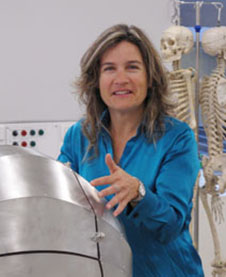
The overarching goal of Christine's lab is to understand how complications of pregnancy - such as obesity, gestational diabetes, and infection - increase the risk that offspring will acquire neurodevelopmental abnormalities later in life – such as autism spectrum disorder, obesity, learning disabilities, and depression.
To do this we are identifying factors that are unique to complicated pregnancies, and discovering how they derail the process of normal brain development.
We use an array of techniques including molecular & cellular biology, mouse genetic models, live cell imaging, and bioinformatics to address our scientific questions.
The research has the potential to discover markers that can be used to predict potential neurobehavioural disorders, and to provide research-informed guidelines for healthy pregnancy.
Christine is also a member of the 'Neuroscience Research Group'.
Laboratory of Developmental Neuroscience
Associate Professor Michael Knapp
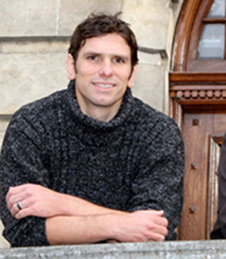
Michael is interested in how species interact with their environment both on the molecular level and on the population level, and how environmental change and human interference shape biodiversity.
His work aims at addressing a number of key questions including how molecular evolution facilitates niche adaptation and how modern conservation measures influence biodiversity.
One of his most recent projects involves using complete genome data to investigate the functional genetic basis of island gigantism in New Zealand's extinct Haast's eagle, the largest known eagle in the world. His team is also studying how populations of endangered New Zealand kaka differ on a functional genomic level to develop targeted conservation strategies based on these data.
"Next generation sequencing technology now allows us to address these challenges with an unprecedented amount of genetic information."
Michael is also a member of the 'Biological Anthropology Research Group'.
Allan Wilson at Otago Research Group
Professor Dorothy Oorschot
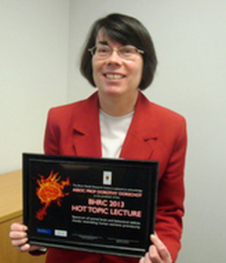
The structure and function of the normal or hypoxic basal ganglia is the main focus of our research. In the normal basal ganglia, neural circuits are being researched to test hypotheses on the cellular basis of movement and learning. For the hypoxic basal ganglia, treatments (eg. hypothermia, stem cells) are being researched to determine whether striatal neurons can be rescued or restored after hypoxic-induced death.
A new animal model of brain injury in infants born extremely prematurely has been developed. This model was published in the prestigious Journal of Neuroscience in 2013. Further characterization of this model and investigation of treatments to rescue the brain injury and behavioural deficits are underway.
Dorothy is also an member of the 'Neuroscience Research Group'.
Oorschot Lab (part of Basal Ganglia Research Group)
Dr Mike Pankhurst
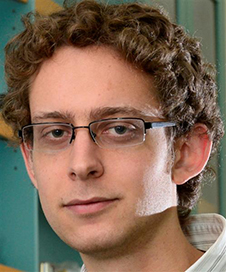
Mike's research seeks to determine the role of anti-Müllerian hormone (AMH) in female reproduction.
AMH is known for its classical role in embryonic sex determination in males but in recent years AMH has been discovered to regulate the way that the ovary uses its supply of eggs.
This has implications for female fertility because the entire lifetime supply of eggs is produced before birth and its depletion leads to menopause and infertility.
Dr Erik Wibowo

Erik is interested in understanding the side effects of androgen deprivation (ADT) in prostate cancer patients. Men with systemic prostate cancer are commonly prescribed ADT in order to slow down the cancer growth. ADT, however, deprives men of testosterone. ADT results in numerous side effects that detrimentally impair the quality of life of both patients and their partners. Erik plans to further investigate the impact of androgen deprivation on sexual, sleep and cognitive functions in both prostate cancer patients and on animal models. Research Projects:
1. Erik is exploring how lifestyle, physical and psychosexual factors influence sleep quality in prostate cancer patients and their partners.
2. By using animal models, Erik plans to investigate the impact of sleep loss on sexual and memory functions, and how these impacts can be modulated by hormone deprivation (e.g., gonadectomy) or supplementation (e.g., estrogen treatment).
Associate Professor Megan Wilson
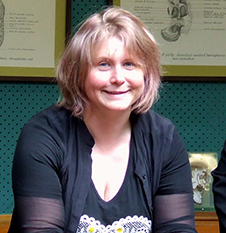
Megan's research interests focus on the following themes:
How do genes become co-opted into novel developmental pathways and the role this has in producing diversity and complexity within animals? The SOX family has evolved a role in the development of most organ systems during embryogenesis including vertebrate-specific tissues. This research programme will determine how genes like the SOX genes are co-opted into developmental pathways and the role this has in producing diversity and novel functions and structures.
Developmental reproductive biology: This research programme involves identifying regions of the genome being transcribed sex-specifically during a crucial time point in development for differentiation of both the testis and ovary and the specification of germ cells (oocyte and sperm). This will lead to a better understanding of the processes controlling the formation of the testis and ovary, but also identification of factors that may underlie disorders of human sexual development and abnormalities.

